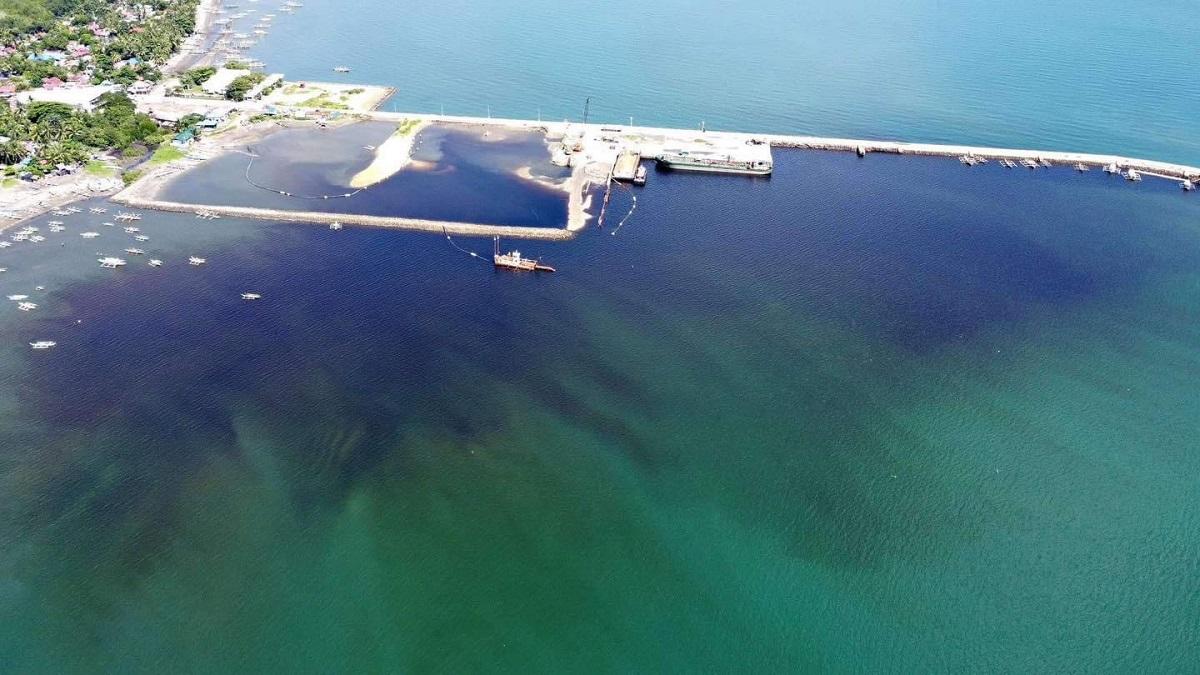PCG: Molasses spilled from motor tanker in Negros Occidental waters

Molasses from MT Mary Queen of Charity was spilled to the vicinity waters of Sagay Feeder Port in Sagay, Negros Occidental on Wednesday, the Philippine Coast Guard (PCG) said on Thursday.
In a statement, the PCG said around 300 metric tons of molasses were already loaded from the truck to the ship when the discoloration was noticed in the waters.
“Yesterday, 07 August 2024 at around 9AM, port personnel observed discoloration in the waters surrounding MT Mary Queen of Charity,” the PCG said.
“The 490-GT vessel was conducting shore-to-ship operations, from lorry truck loading molasses to the ship. Approximately 300 metric tons of molasses were already loaded when the discoloration was monitored in the vicinity waters,” it added.
According to the PCG, the port personnel suspected “an undetermined volume of molasses spilled during the operations.”
Containment and recovery operations are being conducted.
The PCG response team directed to stop the loading of molasses while they assess the surrounding waters, while the PCG’s Marine Environmental Protection Unit (MEPU) conducted water sampling.
For further measures, the PCG also reached out to the City Environment and Natural Resources (CENRO) and concerned local government unit (LGU).
The PCG response team advised the master of MT Mary Queen of Charity to file a marine protest regarding the incident.
According to Food Insight, molasses is a liquid sugar with sucrose, monosaccharides fructose, and glucose. It is a product of the sugar beet and sugar cane refinement processes.
According to manoanow.org, molasses affects marine life as it sinks quickly to the ocean floor and absorbs the oxygen which suffocates fish. This forces fish toward shallow waters.
"Unlike oil, which rests on the surface of the water and is easily removable, molasses will descend to the bottom, making it challenging to get rid of the brown liquid," the organization said.
Molasses also causes algae blooms, which also reduces oxygen. It also allows the growth of harmful bacteria.
"Fishermen are reluctant to go out in the waters in their boats, in fear of dead fish or molasses going into their boat hulls or motors," the group added. — RSJ, GMA Integrated News




